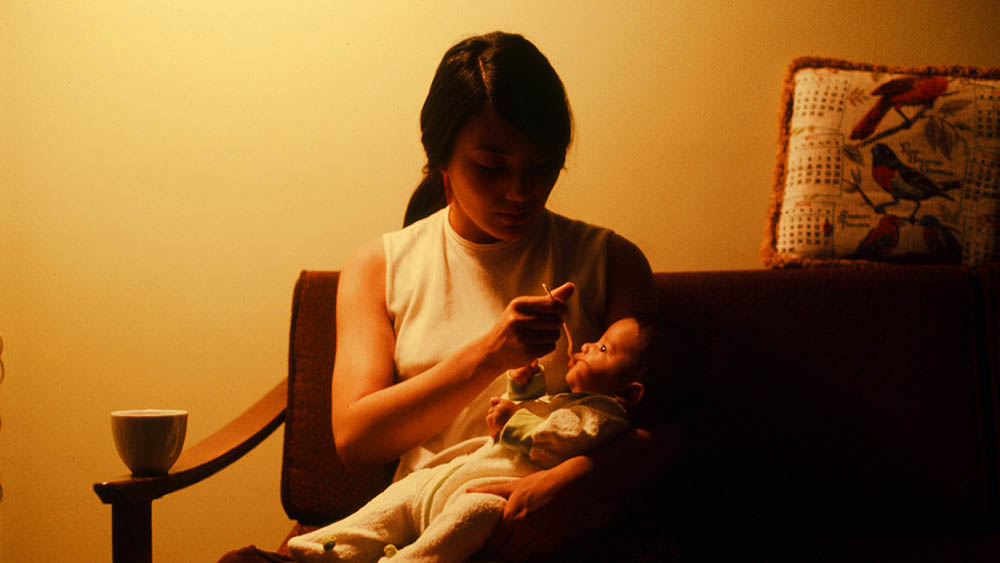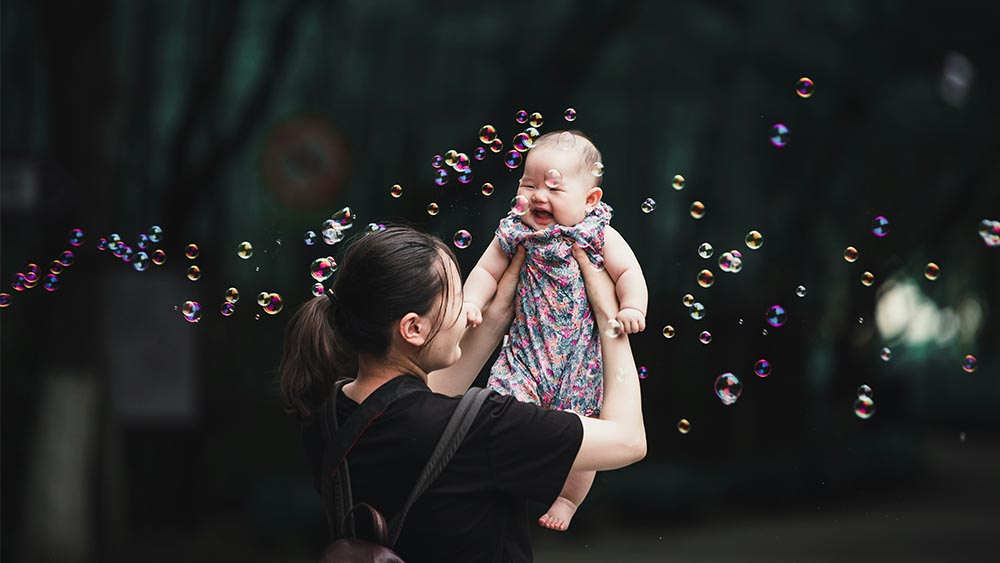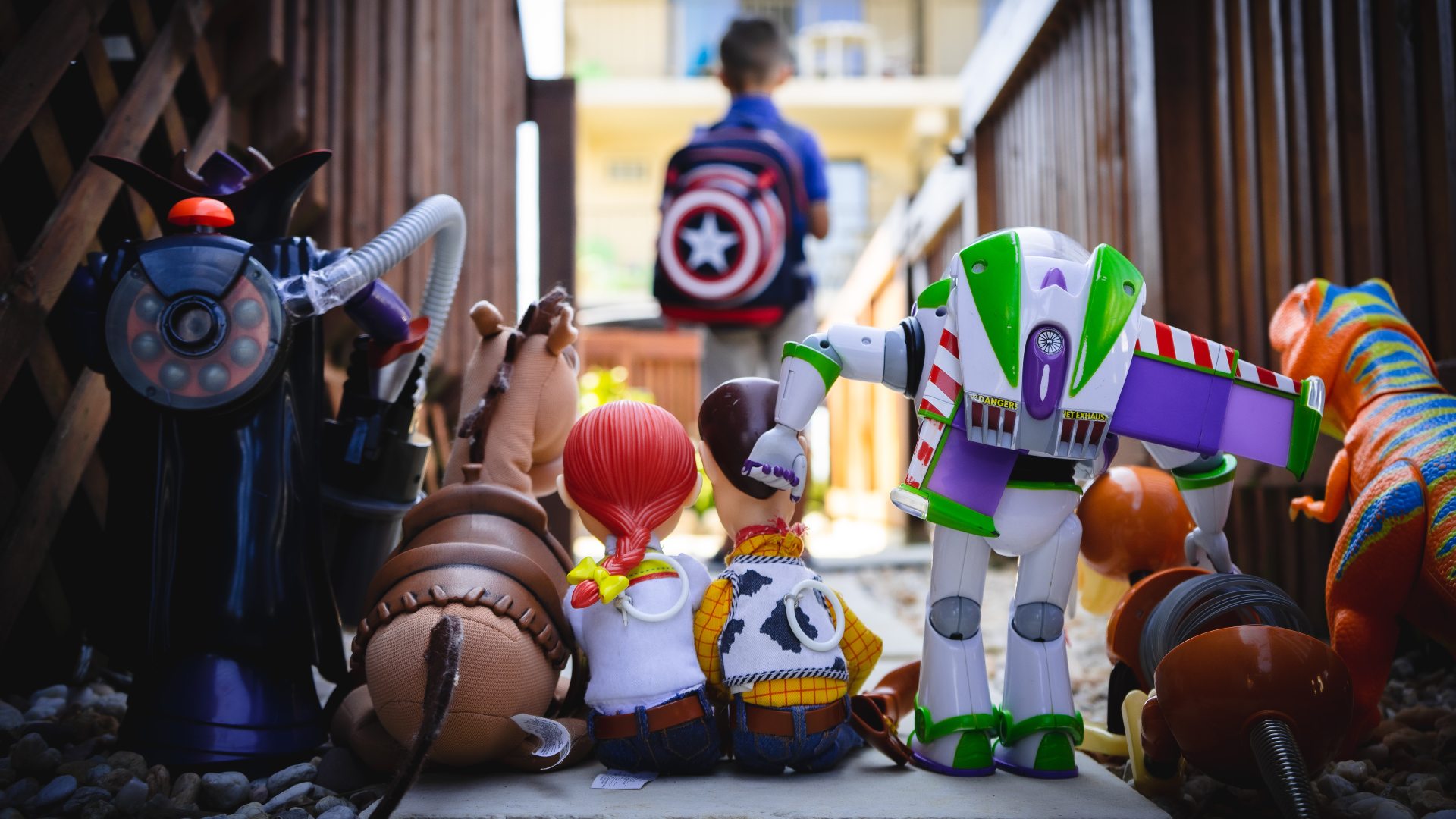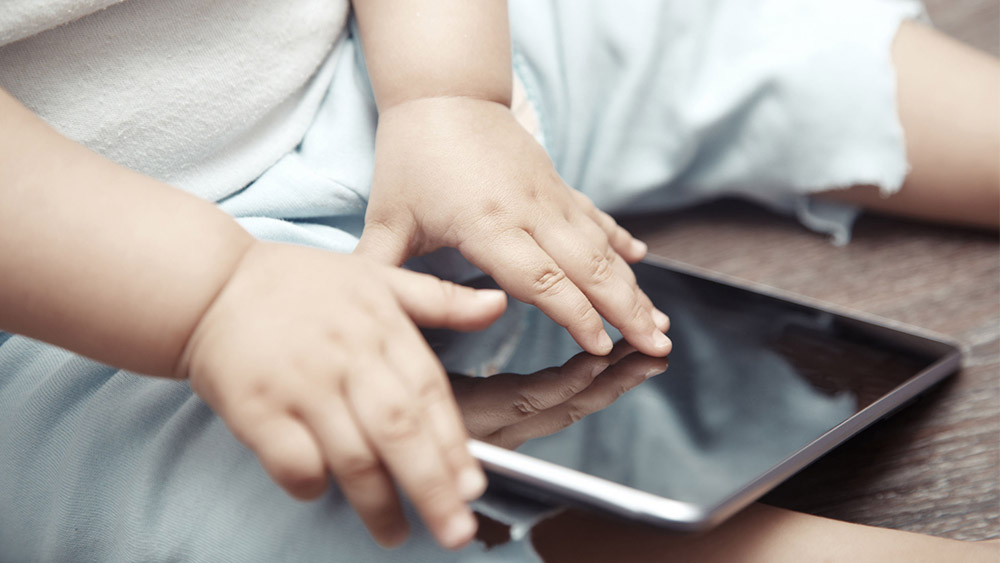The Best And Worst Things I Did For My Mental Health Postpartum
With World Mental Health Day approaching on 10 October, I couldn't help reflecting on one of the toughest seasons of my life: the 12 weeks after I gave birth. At work, I'm used to dividing tasks into what's urgent and what's important, but what no one told me about the first few weeks postpartum is that everything feels like both. A baby wailing for milk feels urgent and important. Poop flowing out of a diaper feels urgent and important. Recovering from childbirth, learning to breastfeed, and controlling the flow of visitors all feel urgent and important.
As much as I’d heard about postpartum anxiety and depression, it was only after becoming a parent that I realised how easy it is for one’s mental health to take a backseat to matters that feel more tangible and pressing. The more I dismiss my own needs, the harder it is to feel joyful about parenting or to give my best to my child.
As a first-time parent, there were a lot of things I could have done better. At the same time, there are a lot of helpful things I’ll do again if I have another baby.
Below, the best and worst things I did for my mental health postpartum:
Best:
Allow other people to help
During my first few days at home, all I wanted to do was to bond with my newborn, so whenever well-meaning family members or my helper swooped in to relieve me, I’d get a little territorial. Who gave you permission to take my baby out of her car seat? Who asked you to pick her up when she cries? The intervention of others also wounded my pride—were they helping because they thought I was incompetent?
But as natural as it was to become a “mama bear” after giving birth, I soon learnt that my capacity has limits. Once the confinement nanny left and the “novelty” of having a child wore off, I started to appreciate the privilege of having a village I could call upon so that I could get some rest, and in turn, have a little more mindspace and energy for my baby. This included accepting relatives’ offers to babysit for an afternoon, or even asking my domestic helper to watch the baby so that I could shower in peace (I tried doing it without her help for two weeks, and let’s just say that there were several days where I missed my morning shower simply because I couldn’t let the baby out of my sight).
Mute the mummy group chats
As useful as the mummy WhatsApp chats are for finding Shopee lobangs or honest reviews of post-natal masseuses, the barrage of information made me question everything I was doing. In the chats, mummies constantly ask each other how much their babies drink, how much weight their babies are gaining, and how much breast milk they’re pumping. Every time I opened the chat, I’d feel a tightness in my chest. Everyone else’s baby is drinking 750 ml a day, but mine is only drinking 600 ml. Is that okay? I’d ask myself. The chat group says their paediatrician advised them to feed their jaundiced babies formula. But the polyclinic doctor told us to keep feeding her breast milk. Should I get a second opinion?
Matters such as how early babies should sleep through the night also invited comparison. Logically, it doesn’t make sense. No two adults have identical sleeping patterns, so why should I benchmark my baby against all these other babies, whose ages, temperaments, and feeding habits differ from mine? Even though in my head, I knew I shouldn’t compare, I still felt a little heartsick, so I decided to protect my peace and stop checking the chats altogether.
Maybe I don’t know how my baby, my recovery, or my breastfeeding habits compare to others, but as the saying goes, ignorance is bliss.
 IMAGE: 123RF
IMAGE: 123RF
Meet up with friends - WITHOUT my baby
As much as I love being a mum, being on “mum mode” 24/7 is exhausting, lonely, and can set you up for an identity crisis. Whenever I started to wonder who I was aside from being a mum, I’d call for reinforcements at home and arrange a date - usually with another mum friend who could understand! - minus my kiddo. Being able to talk to another adult while drinking my coffee in peace gave me the respite I needed to return home, refreshed and ready to set aside my “me time” to be a mum.
Set aside time to decompress every day
Speaking of “me time”, a fellow mum friend told me that I should take a little bit of time every day just to breathe - and that showering, using the toilet, and doing chores solo don’t count. I know it may sound impossible or even wrong to ask for a bit of leisure time when you’re keeping a small human alive, but the need for rest is hardwired into our bodies. This can look like anything from journaling, to exercising, to even taking a nap (and no, “sleep when the baby sleeps” doesn’t count either - anyone who’s tried this would know that it’s impossible to fully relax when you’re on standby for the baby to wake up). By asking someone else to take over for at least 20-30 minutes at a time every day, I was able to calm myself down, gather my thoughts, and approach the next part of the day with some fuel in my tank.
Set boundaries with relatives and visitors
Dealing with the demands of a newborn when you’re in a great deal of physical discomfort is hard enough without having to deal with outsiders. Which is why I’m so glad I insisted we limit visitors aside from our parents for the first three weeks postpartum. And which is why I also decided to remove myself from the room if I couldn’t deal with people’s negative comments. There’s also so much I can do to stop people from making comments like “don’t carry your baby so much” or “if you think it’s bad now, wait till they can walk and talk”, I had to tell my husband that if I couldn’t deal with their negativity, I’d have to excuse myself. And speaking of talking to my husband….
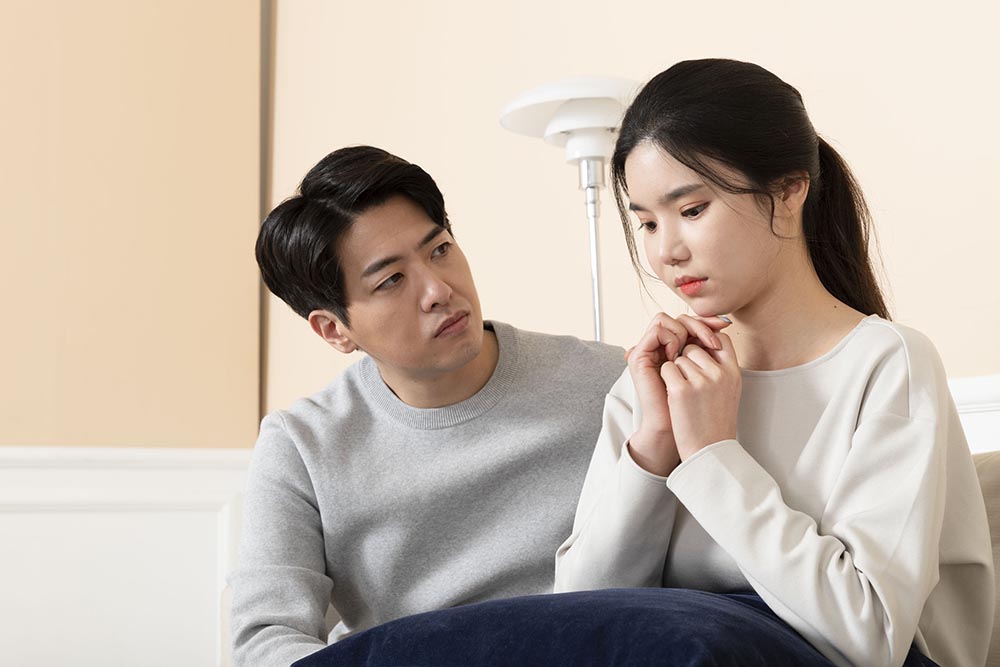 IMAGE: 123RF
IMAGE: 123RF
Communicate openly with my husband whenever I was upset
By far the best thing I did for my mental health was to nip resentment in the bud. Once my husband’s paternity leave ended, I couldn’t help feeling a little annoyed that he got to enjoy a 9am to 7pm break from the baby every day while I’d go 12 hours covered in body fluids and milk. We both contributed to the conception of this child, so why did I have to bear the full biological responsibility while he got to progress in his career and partake in his hobbies?
Early on in our postpartum journey, I decided to tell my husband whenever I was feeling overwhelmed. Never mind if I came across as naggy or needy - I needed someone to look out for me and the baby if mental health started to spiral. I was surprised and touched by how much my husband stepped up once I communicated to him what I needed: while I’m still in charge of feeding the baby, he bears the load of bathing her, changing diapers, or waking up with her at night.
Worst:
Not going outside at least once a day
One of the biggest mistakes I made during my early days postpartum was staying indoors all the time. While traditional confinement rules ask that we not go outside for a month, the benefits of going outside are well-documented - exercise helps stimulate our serotonin, seeing greenery reduces our anxiety, and getting some sun helps regulate our sleep cycles.
I knew all that, and yet, I stayed indoors for weeks at a time, going out only to bring my baby to her mandatory appointments at the polyclinic - not because I was determined to stick to the confinement rules, but because I felt too ugly, tired, and listless to go outside. But that only made things worse. As anyone who’s experienced the 2020 Circuit Breaker would know, being indoors too much can make you feel “stuck” in a cycle of boredom and negativity, which I was already vulnerable to as a hormonal new mum.
I’ve since learnt my lesson and now go outside at least once a day, even if it’s just 10 minutes at a coffee shop. As a bonus, I get a lot of cute smiles from friendly and uncles and aunties when I bring baby with me!
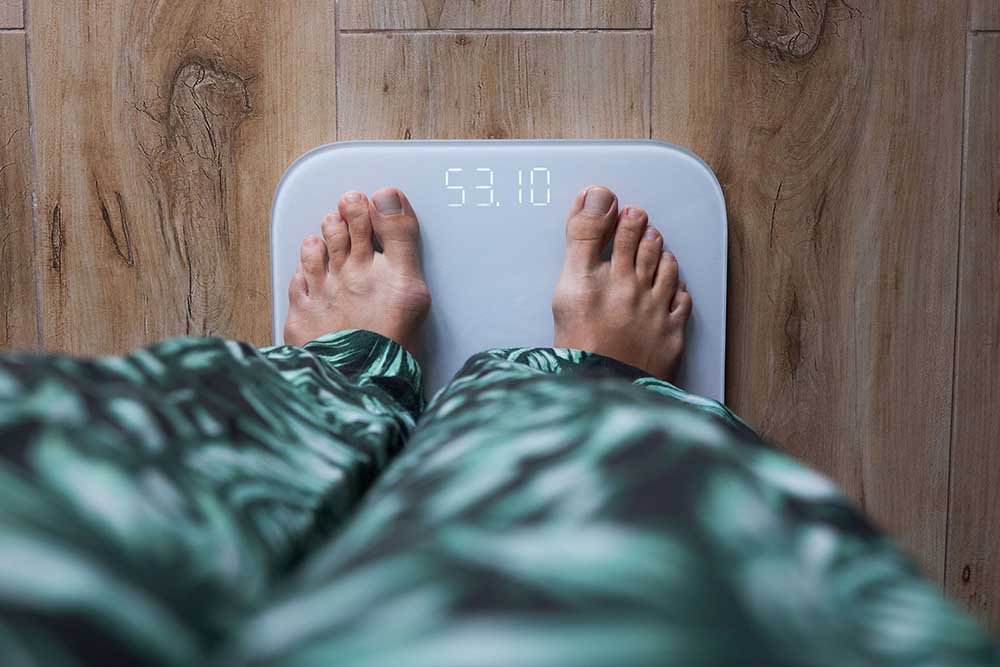 IMAGE: 123RF
IMAGE: 123RF
Weighing myself every day
Whoever said that the weight will just fall off after you breastfeed was lying. While this may be true for some women, others will gain weight because of the amount of extra calories needed to maintain one’s supply of breast milk. When friends told me they’d lose 1-2 kilograms a week, I began weighing myself, only to get frustrated when my weight plateaued about 5 kilograms away from my pre-pregnancy weight.
No two bodies are alike, so if you’re in the same boat as me, know that your body’s doing its best to keep both you and the baby healthy. If this means holding on to some calories so that you can recover or, if you’re breastfeeding, so that you have enough energy to feed your little one, then instead of punishing your body for “holding on to the fat”, thank it for all the work it does to calibrate what you need!
Checking social media incessantly
I’ll never forget the night when my TikTok algorithm decided it’d be a great time to show me content about SIDS (Sudden Infant Death Syndrome). I lingered a little too long on the TikTok out of curiosity, so of course the algorithm decided to send me more. I soon began losing sleep over fear that my little one wouldn’t wake up - if it happened to all these mums I saw on TikTok, why wouldn’t it happen to me?
Refreshing my Instagram didn’t help either, as I was constantly bombarded with posts by “breastfeeding influencers” flexing their supply. I felt so pressured to keep up that I accidentally created an oversupply, which in turn led to many expensive health issues, and which of course did a number on my mental health.
If I were to do it again, I’d not only stop checking social media, but I’d probably delete it entirely while waiting for the hormones to settle down. TikTok and Instagram might know my consumption habits, but my real-life friends who know I am and what I need, so I’ll consult them instead when I need help.
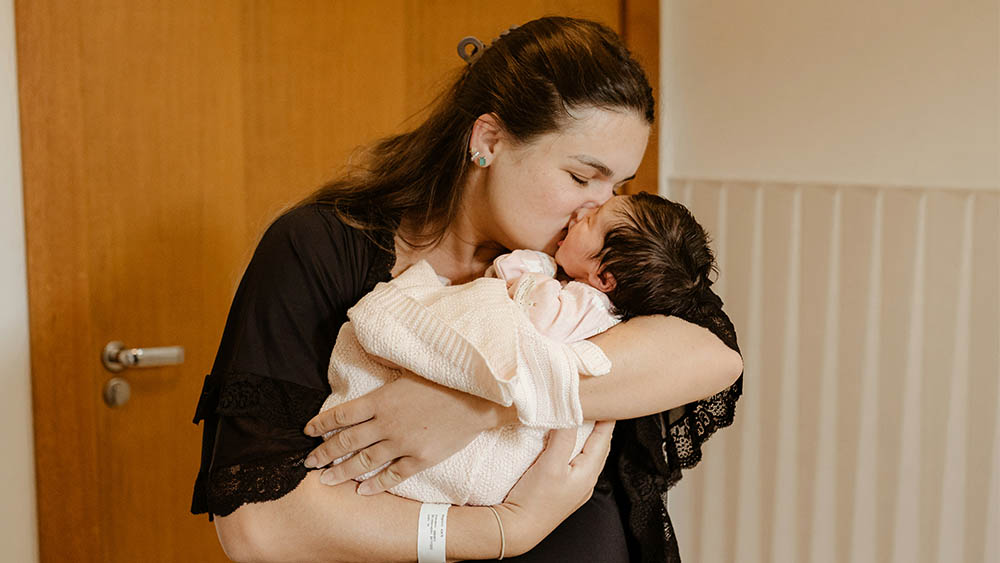
IMAGE: UNSPLASH
Getting too hung up on set methods
If I could go back in time, I would remind postpartum me that babies (and mothers!) aren’t robots: there isn’t one sleep hack that will get them to sleep more, nor is there one dietary plan that will increase my supply of breast milk. There isn’t one “tried-and-tested” method to ensure that my child makes all her milestones or learns to play independently; anyone who claims that there is is selling something.
By becoming so fixated on methods, I set myself up for disappointment when they didn’t work or when they stopped working. I also put way too much pressure on myself to make the baby sleep, nap, and eat a set timings and for set amounts, which of course led to frustration when her patterns varied. I’ve since learnt to be flexible and give myself and baby space to change and grow - at the end of the day, it’s more sustainable for me to read her cues and respond accordingly, than it is for me to expect her to conform to “expert methods” that don’t take into account my child’s unique needs and circumstances.
My final piece of advice? Embrace the chaos, stay kind to yourself, and remember - each journey is special in its own way.Need support?
When in doubt, remember that there's no shame in seeking professional help. Here's where you can reach out:
- Institute of Mental Health’s Mental Health Helpline (24/7): 6389-2222
- Women's Helpline (Aware): 1800-777-555 (weekdays, 10am to 6pm)
- Samaritans of Singapore (24/7): 1-800-221-4444
- Singapore Association for Mental Health (SAMH): 1800-283-7019 (weekdays, 9am-6pm, excluding public holidays)
- Pre and post-natal therapy with Alliance Counselling: 6466-8120
For the latest updates on Wonderwall.sg, be sure to follow us on TikTok, Telegram, Instagram, and Facebook. If you have a story idea for us, email us at [email protected].







